|
by Camela Thompson Today I met with J.H. Coates for his vlog/podcast (check out his channel on Youtube), and our conversation had my brain whirring long after we disconnected our video chat. In reading the synopsis for my book, he noticed my main character in All the Pretty Bones challenged the traditional role of female victim from the start. Olivia decides to hunt her stalker. He wondered if that was difficult for me because it flies in the face of some deeply ingrained cultural norms. What an excellent question! All the Pretty Bones was Olivia's first step into an evolution that (Spoiler) later leads her into a life as an apex predator. I desperately wanted to challenge the typical set up of normal, plain, boring girl meets wonderful vampire who sees something special in her despite her overwhelming normalness. Trust me, I've enjoyed those books, but I wanted something different. I wanted someone who had greatness locked inside of her, waiting for the right trigger into evolution. I wanted someone who had strength despite physical instability. For those of you who haven't read the book, Olivia faces ten years of persistent trauma by her stalker only to be diagnosed with terminal cancer. With nothing to lose, she decides to hunt her hunter. My primary challenge centered around her illness. There are dramatic physical limitations that accompany her condition, which presented giant issues that stood in the way. I couldn't Rocky my way through the book. She couldn't train herself into peak physical condition and chase down her tormentor. How can she fight when she can barely function? How can she run away and avoid being cornered? Weakness, fatigue, and debilitating headaches are just the tip of the ice burg as many of us have unfortunately seen. Asking for help is hard, but it's not a sign of weakness. Olivia does ask for help, and she asks it of a man. The majority of reviewers appreciate how its navigated, but not all. It was a very difficult balancing act. I didn't want her to depend on someone else, but I needed to approach the scenario realistically (I laughed at myself a little just then because VAMPIRES....but even fiction has to have some semblance of logic). In the end, she's forced to face her nature--on her own--before she's ever given the opportunity to tap into her power. It was difficult to challenge the traditional definition of victimized women, but it wasn't at all for the reason I thought. We are seeing more examples of strong female warriors in television, and this is a good thing. However, there is still a very long way to go. My friend and I decided to watch Tarzan together despite our reservations over the inevitable questionable messaging (she wrote a wonderful blog post on it here). While Jane showed intelligence, fortitude, and bravery, she was still the damsel in distress, relying on her husband to rescue not only her but all of Africa (big eye roll). In a bizarre twist, her spirit revved her captor's engines. Even her fortitude was sexualized. Right about now my family would be rolling their eyes, but look at how women warriors are depicted in video games, comics, television shows, and movies. One day I will sit down a costume designer and explain to them why it isn't practical to run around in three inch heels with long hair flowing free and only leather panties and bra when fighting bad guys. If you doubt me, here's what a search for "woman warrior" turned up in PIxabay: The search for "man warrior:" Can we agree the clothing ratio is a little higher on the second search?
To be fair, there are some wonderful exceptions to the typical depiction of the woman warrior. Miss Fisher's Murder Mysteries, Jessica Jones, Crimson Peak, Pan's Labyrinth, and The Girl with the Dragon Tattoo are just a few that come to mind. There are male writers who write women well such as Joe Hill, John Green, Stephen King, and George R.R. Martin. Their secret? Writing women as three-dimensional characters who have motivations, needs, and an arc. As an author, I view it as my responsibility to continue to challenge myself to overcome social tropes in my own writing. I haven't always succeeded, but I'm aware, and I'll keep trying. I encourage others to do the same. Have you seen good examples of women warriors in mainstream media? Please share examples. I'm always looking for my next book, television show, and movie.
1 Comment
by Camela Thompson Any writer will tell you how hard it is to be published traditionally. In fact, other writers relish telling the horrors of their literary adventures. Go to any crowded writer's conference and make an off-handed comment about pitching, querying, or general discouragement in the vein of getting published and several people will be more than happy to commiserate with you. Publishing becomes this mystical thing that may only be obtained under the most superstitious and rare of circumstances. Because it's so difficult, once the goal is achieved there's a belief that every subsequent action will seem easy by comparison. If it's so hard to get there, the rest will be a breeze. Right? RIGHT? Not so much. Getting over the hurdle of being published is an accomplishment that should be celebrated. It's a rush I will never forget. But as I look back, I realize I had unrealistic expectations of what it meant. I'd quit the day job, crank out three wonderful books a year, and tolerate speaking engagements with Ellen. She'd laugh at my wit. We'd become best friends and bond over our love of animals and quirky humor. Then Tina Fey and Amy Pohler would join the party and we'd create the most gut busting tribute to feminism ever. While I still think we'd all get along famously, it looks like a pipe dream at this stage in the game. Plus, typing it out made it sound really creepy. For the benefit of others dreaming of their fast track to the best seller list and all that comes with it, here are some of my own myths that have been busted after publishing. I Can Quit the Day Job False. My best advice to anyone who wants to be a professional novelist: Find a day job you love. The median income for a traditionally published author is around $4,000. It takes a while to gain that much traction. After the costs of ordering my boxes of books, paying for online advertising, taking classes, and other writerly activities, I haven't seen a royalty check in my first year. Most of my sales are online, and while the volume isn't bad, the royalties are small. I've considered trying to ghost write or query articles, but it isn't for me. I make more money as an analyst and can afford to hire people to help me with things like marketing and cleaning, giving me more time to write. It's beyond rare to hit the jackpot with the first published book. It happens, but most of us begin our publishing journey with a book that goes largely unnoticed. Then we spend the next several years promoting the crap out of it while trying to write new masterpieces. These things are even harder to do when you have a job you hate. You'll need to work. Either find something that will give you flexibility to work on your writing, edits, and marketing, or find something you love. It doesn't matter if you love the product, enjoy the people, or like working for a cause - what matters is that you go home with energy instead of feeling drained. Writing Becomes Easier False. Writing is an artistic action that requires the participant to be willing to make mistakes. If you spend your time typing and deleting because the words aren't good enough, you'll never finish a book. I've found this to be especially true with a series. Not only do I worry about creating a story that is good enough, I worry about spending enough time on characters that my readers enjoy. I worry about making readers hate a character I love. I worry about my excessive usage of the words his, her, it, and was. All of these things crank through my head as I stare at the page, and it slows the words down. This isn't necessarily a bad thing, and I think it will get better. Eventually. Sometimes I manage to shut off the critic and the words fly. Too often, I spend an hour moving around sentences that could be spent getting the rough motions of a scene on the page. I know my writing quirks. It slows me down. But I'm becoming a better writer. Subsequent drafts are better. I Can Lock Myself Away to Write False. Writing in a vacuum is a bad thing. It's so crucial to get feedback on a story to see if it works for other people. Beyond that, having a system of support is critical. Whether it's celebrating over beer and bacon or strategizing over Google Hangouts or an impromptu pitch workshop in my living room, interacting with other writers keeps me going. The Marketing is Done for Me False. (This made me laugh hard enough to worry the dog.) Marketing should begin before you ever get a book out the door. Want to be published? Make a website and start learning about social media now. Start with one platform at a time, but start early. By the time your book is out the door, you should know which social media platforms your demographic uses the most and be able to use them. I should be posting to Facebook and Instagram a couple times per day. Twitter is more frequent. I blog once a week and post a podcast weekly. All of those things take a lot of time (about an hour and a half per day). Those are just online interactions. The in person stuff involves approaching bookstores to carry books and inquiring at venues for readings. Then there's mobilizing readers to review my books, request them in bookstores and libraries, and help expand my reader base organically. How to Get Ahead Listen to podcasts like The Self Publishing Podcast, Nerdist Writer's Panel, Writer 2.0, and Helping Writers Become Authors. Check out Nick Stevenson and his books on promotion. Follow your favorite authors on social media and take notes on what you do and don't like. Whether you're traditionally published, hybrid published, or self-published, we can all learn a lot from other authors who are successful. Even the famous authors have to put in their time interacting with the public. Just because getting published is hard doesn't mean it's not worth it. The best things in life are worth fighting for, and following your passion is no exception. Are there things you wish you knew before publishing? Are there things you're glad you didn't know? Are there things you need help with as a writer or published author?
by Camela Thompson If you read my post about writing a book in a month and a half, you're probably wondering how writing a book in a week could be a good thing. Last time I pushed myself, worked too hard, and snapped up an opportunity to take some time off. This time, it was different. An idea popped into my head and kept spinning around and kicking things until I had to write it down. After months of wondering if I would ever get another idea, I ran to my laptop. I typed for hours, only walking away to figure out where to go next. Within five days, fifty-thousand words had spooled out of my head and onto the screen. Even my loyal assistant grew weirded out with the amount of time I spent typing When I was young, I asked a ton of questions as I tried to understand how things work. I still do. It's why I'm an analyst during the day. It has always frustrated me when the answer to a question is, "It depends." I prefer answers to be straight forward and logical. It's why I often fall on my face as an artist. Now I have discovered that the amount of time it takes to write a book is fluid, and how that time passes--how it feels--also varies.
I started this hiatus from work back in April. It ends next Monday when I start up the day job again. In that amount of time I expected to write a book, maybe two. I spent the majority of my time writing chapters only to delete them. I started my third book in The Hunted series three times. THREE. None of them felt right and my editor agreed when I met with her. The good news is she helped me see what wasn't working. We brainstormed. It is a gift to have someone in my life who understands my characters and will let me talk it out. Plus, we met at a bar with hard cider and bacon. That took the sting out of learning I was looking at another rewrite. The next morning, I wrote some decent chapters. I feel optimistic that they won't be going in the trash bin, but the next scene didn't jump out and beg to be written. Being on the right path was enough. I accepted I would not write a book. Determined to enjoy the rest of my break, I scheduled time with friends. And then something happened in the last place I would expect: a movie theater viewing of Magic Mike XXL. The movie wasn't good so far as storylines and dialogue goes. The men were gorgeous, the dancing was great, and I will never look at Cheetos the same way, but I didn't give a rat's ass how Magic Mike got the bros together for the big show. But something Donald Glover's character said wound up something in my brain and it would not stop ticking: "...these girls have to deal with men in their lives who every day, they don't listen to them. They don't ask them what they want. All we got to do is ask them what they want and when they tell you, it's a beautiful thing, man. We're like healers or something." I write thrillers. Sometimes I even crank out horror stories. I don't do chick lit. But that line got me thinking about all of the women in the world who feel invisible. Ignored. It spoke to my history. What would drive a woman to seek validation of her existence? What would make someone crave acknowledgment on such a basic level, something that could be fulfilled by the simple question, "What do you want?" The answer: Emotional abuse. A character came to life in my head. I could picture her leaning over her sink in her shitty little apartment. I could feel the pull to wipe off her makeup in response to years of programming by her ex-husband--an ex-husband who had left her. This woman has good friends who rally around her now that she's not isolated any more. It isn't until she finds herself that he comes back because he can't stand to see her happy without him. I followed her down a rabbit hole and I ran to keep up. Scenes played like movies. When it was done I had a migraine and wondered if I had written fan fiction (I don't think so, but the migraine left me a little muddled). I have used this break to figure out where the strain and weight I felt last time came from. I've looked at ways to make life easier. I looked at different career options and asked myself what I should do with my life. I can't claim I have everything figured out. But I found joy in writing again. I had a new idea. Most importantly, I have faith that I'll have more. I have no idea what I'll do with this book--whether I'll publish it or even what genre it's in--but I feel lucky this happened. Now I have to apply the lessons from last time and not force the rest. by Camela Thompson
I was recently in an interesting Twitter conversation with @TheWriteMunz. He had heard my tirade on Jurassic World and wanted to know my opinions on Fridging versus a Red Shirt. First, let's start with the definitions. Fridging Fridging is a specific technique used to motivate protagonist characters into action. The writer creates a traumatic situation involving someone the protagonist cares deeply about. Often the protagonist's family member (or entire family), wife, girlfriend, partner, or best friend have something horrific done to them, usually ending in death. The body is left so the main character finds it and is further traumatized. The trope originates from the storyline of Green Lantern. Major Force literally leaves the protagonist's girlfriend shoved in a fridge for him to find later. I explained this concept to friend and she told me, "Once you know to look for it, it's everywhere." She's right and there's a reason. The death, mutilation, or rape of a loved one is a very compelling reason to seek vengeance. It's often seen in comic books and video games, but it's all over the place in television, books, and movies. Fridging Examples These are more obvious examples where the fridging incident is a main feature of the plot. There are plenty of movies, like Star Wars, where more distant characters are killed off to motivate a character into action (Luke Skywalker coming back to his Uncle Owen's farm and finding the crispy bodies of his uncle and aunt). Max Payne - A cop comes home to the gruesome murder of his wife and baby. His partner is also murdered. He sets out to bring the people who ruined him to justice. Supernatural - So many to choose from. The Winchester boys lose their mother, Mary, who is burned alive on the ceiling of baby Sam's room. Sam loses his girlfriend the same way, watching her burn. Both are motivating factors in their drive to hunt demons. There are many, many more characters shoved into refrigerators on this show throughout the seasons - Google it. The Barber - A cop is convinced he knows the identity of a serial killer and becomes obsessed. When the case is thrown out and his name run through the mud as a dirty cop, he shoots himself while his son is reading upstairs. Twenty years later, the son goes on a mission to bring the escaped killer to justice. The Fugitive - A woman is brutally murdered in her home and her husband is accused of the crime when he comes home to an active investigation of the crime scene. The husband escapes police custody in an accident and goes on the run, professing his innocence and searching for the killer along the way. Red Shirt The Red Shirt trope comes from the original Star Trek television series. If you've ever seen the show, you know that the characters in the red shirts have a limited life span from the time of their appearance (except for Scotty because he's a badass). Red Shirt characters have little or no direct tie to the main character and are used to move the plot forward. You'll see them most often in crime mysteries, thrillers, and horror. It's common to have a Red Shirt appear in the first chapter of a thriller to illustrate the presence of a killer (I've done it myself in All the Pretty Bones). A great example of this in television is Supernatural, which uses the trope not only to demonstrate the presence of a killer, but also hint at what it is and how it works. Why wouldn't it be okay to use these? I use the Red Shirt trope, so I'm not going to argue against it unless you rely too heavily on a limited set of main characters and only have appearances from people who strictly serve the purpose of dying outside of your core character group. There are people in the world who need to exist for things like gas stations, grocery stores, and police departments to keep running. Remove everyone and you have a problem unless you're intentionally writing a dystopian thriller. As long as we have stories with murderers, there will be Red Shirts. If someone doesn't die, there isn't a murder to solve. Fridging is more problematic and, honestly, a bit tired. I would challenge people to find more creative means of motivating their characters. There are a lot of reasons why people join the police force. Yes, some of them involve murder, but branch out! Maybe your superhero just has a psychological complex--those can be interesting without an entire family being slaughtered. The biggest problem with Fridging is the majority of victims are women and minorities. It's so prolific that the term Women in Refrigerators was coined a long time ago to capture the phenomenon. I gave a more equal opportunity range of examples above (dads are great fodder, apparently), but our straight white male protagonist is often motivated by something happening to his main squeeze. More examples of Fridges in Comics A great post by The Promethean Playground on why we need to do better 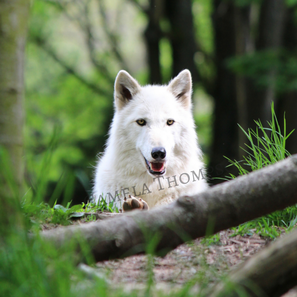 by Camela Thompson The wolf is a beautiful, intelligent creature, and the source of much fear and anxiety ever since humans took up farming. That is a long history of contention! The impulse to fear them is quite natural--they stand taller than just about any dog and those eyes carry a light in them that demands respect. Rabies, a disease that could drive the animals to viciously attack and leave behind a terrifying fatal sickness, added a fervor to the fear. No wonder the wolf began as a villain. But did it? The conversation that took place on our podcast, Shadows on the Sound, inspired me to do a little more research. Going back further than fairy tales (Red Riding Hood, Three Little Pigs, The Boy Who Cried Wolf, etc.), there are several instances of gods shifting into animal form. Many early religions regarded the wolf as the mightiest of all animals. From Gaul to Breton to Romania to Greece, cultures gave their gods the ability to take the form of the wolf or used wolves as the symbol for their god. Even Apollo had an affiliation with wolves. Germanic paganism gave a slightly less flattering portrayal of wolves (Fenrir slayed Odin), but they held their ferocity in esteem and wore their pelts to denote their totem animal in battle Wolves became demonized when commercial farming became a primary source of income throughout the world. Efforts to exterminate the wolf as vermin grew into an organized effort in the Middle Ages in Europe. The wolf population went from half a million living peacefully with the Native American population to 300 grey wolves by 1960 (red wolves were extinct except for the small population living in captivity-go here for more info). A similar job was done in Europe, they were driven to extinction in Japan, maned wolves (not technically wolves, but still persecuted) are endangered in South America, and Tibetan wolves are still hunted. Attacks by rabid animals fueled the hysteria and attitudes have only shifted in the last forty years towards rehabilitation and protection. Japan had the kitsune (a fox, not wolf), the French had the Loup-Garou (which travelled over to Louisiana and emerged as the Rougarou), and the Navajo yee naaldlooshi. Nearly every culture has lore that involves transformation from man to beast. More modern depictions have traditionally fallen into the Thriller genre. The most common construct involves a man being bitten by another werewolf only to turn into a wolf himself on the full moon. The myth often differs from vampirism in that the infected person is left alive and human for the better part of each month. The werewolf is a rare creature. It gets to retain its humanity for the majority of the time, which also means he/she has to live with whatever havoc they wreak on a full moon for the rest of their very long lives. Vaguely romantic, but still entirely terrifying. Over the last several years, werewolves have been cropping up in romance. It's an interesting transformation, and one I feel is linked to the increased awareness about the damage we have inflicted against a creature that largely leaves people alone (livestock is another matter). The incorporation makes sense on more basic levels. Men and women with more animalistic tendencies are viewed as more hot-blooded in the bedroom. In a culture that seeks alpha male behavior, the werewolf is the jackpot. Danger and sex and are often intertwined, and even more so when a werewolf is involved. The lack of inhibitions don't hurt either. Maybe we're going back to our original regard for an animal that embodied strength, cunning, and loyalty. What do you think of the surge in were-animals in romance? While they still have a place in thrillers, can you also picture them as heroes? by Camela Thompson Thursday--May 28th--marked my very first book reading at a book store. What made it even cooler? It was the book store where I wrote the majority of Blood, Spirit, and Bone. I was excited and terrified. It was a great experience (thank you, Third Place Books and Michael G. Munz!). There were a lot of great questions posed during the Q&A session at the end of the reading, but one question stuck out in my mind. "How long did it take you to write your book?" When I answered that the first draft took me a month and a half, peoples' eyes bugged out. Specifically, my author friends' eyes bugged out. This leads me to believe that in the short amount of time I had to address the question, I didn't give a fair picture of that experience. When I said it took a month and a half, it was true. What didn't come across was that it was hell. So many things were sacrificed, including some sanity, in order to make the deadline. And you know what? That's okay. I chose to push myself, and I knew there would be consequences. I'm not writing this post to be a big baby whiner. I'm writing this because I see other authors discouraged by production rate, and it's important to know the good AND the ugly. In order to reach the fifty-two thousand words I needed to finish my book in November, I worked at my day job from 6 AM to 3 PM Monday through Friday. Add on another hour for commute. I had ten hours of the day dedicated to work, minus the occasional minute here and there jotting a note in a notebook when I had an idea for a scene. Add another two hours for taking care of the dogs, cleaning the kitchen, and dinner. In order to get up at 4:30 AM, I went to bed at 8PM. That left 1.5 hours to write. If cleaning couldn't get done in the two hours after I got home, it didn't get done. Certain rooms got priority on the list (bathroom and kitchen). The weekends were for marketing the book I had released in October and writing. Saturdays were spent at home writing. Sundays I spent at least two hours at Third Place Books writing with my writing group. I didn't have the energy to socialize. At home, this was my usual view: This picture makes my heart hurt a little. We lost Champ on December 2nd, but I spent a ton of time next to him in November. Any breaks were spent rubbing his belly and talking to him. It was a big upside to the mad dash toward a first draft.
My husband was amazing. He picked up a lot of slack on the chores, did the grocery shopping, took on dinner a couple nights a week, and was up for eating out more. Oh. And I ignored him. Often. We do the same day job and he would want to talk shop. I didn't have the energy for it. Thank God for football. It made me feel much less guilty about at least one day during the weekend and a couple days during the week. Writing is a very emotional thing for me, fraught with angst. Consistently, the third and two-third points come with a belief that I am not a writer and the book is garbage. A condensed timeline forced me to put the angst aside and keep marching on. The cost? I think the low point was when I stood in the kitchen looking at stacks of dirty dishes. Cue ugly toddler crying because I had to make dinner and just couldn't handle it. This happened a few times. If I didn't do certain chores, they didn't get done. Sometimes I was okay with that. Sometimes I was too fragile to deal with much of anything. I drank more, ate more junk food, and consumed coffee - all bad ways of chemically balancing out the stress. It has taken me a lot of time to cut out everything but the coffee and get back to exercising. Two books in a year brought me to my knees. I know of authors who crank out more. I don't know how. Was it worth it? I learned that I need more help if I go back to work full time and want to keep up the same pace. If I'm working and we have dual incomes, some of that money is going to hiring someone to help with marketing and a house cleaner. We've also talked about me going back part-time or doing contract work--the latter appeals to me quite a bit. What I know for certain is that doing things the same way and expecting different results would be foolish. I don't intend to paint a bleak picture, but I want it to be honest. I have accomplished things in the past two years I never imagined would be possible. I wouldn't take it back, but the experience has forced me to realize change is necessary to keep marching forward at the same pace. Do you work full time and write? How do you juggle both? by Camela Thompson
I was asked what I felt a strong female character should look like. None of the traits I listed were physical. Intelligence and emotional fortitude were the front runners - the willingness to persevere in the face of adversity. The individual who plods forward despite fear is a strong person, and those traits do not differ between the sexes. Strength in women, just as with strength in men, does not equate to perfection. In fact, the more adversity the character faces, whether it be in illness, disability, or environmental challenges, the more opportunity the author has to showcase the character's strength. To be honest, there are times I feel bad for my characters because I like to stack the deck against them and watch what happens. Yes, you may picture me cackling at my laptop as I drop another bomb on the battlefield that is my story line. I have to wonder why there is so much focus on building a believable female character. It's not hard to break from the archetype of ditzy, battered Barbara and her lack of self worth. Make your women people. Give them dreams, strengths, and weaknesses. Just don't let the weaknesses outnumber all else. Give her a brain. Let her be the one to walk along her journey without a man guiding her in the right direction. I look at strong women in the workplace and how people respond to them. Women are expected to temper their opinions. Intuitive and compassionate behavior is favored over strict rationality and assertiveness. If facts are baldly stated, they are met with resistance. Here's a great article on the phenomenon. Do people question how to construct a strong female character because they don't want her to come across as "bitchy"? Perhaps taking male traits - a straight shooter with quick wit and brutish strength - doesn't translate directly. Put those same traits in a female character and suddenly you're looking at someone who's "bossy" and "difficult." I'm afraid I have more questions in this post than answers. What do you think makes a strong female character? Why do you think there has been so much focus on creating believable female characters? What do you feel has been lacking? by Camela Thompson Vampire mythology has several common constructs in literature, television shows, and movies. As a rule, vampires are humans who have been converted to vampirism by either a bite or exchange of blood. The moment of transformation kicks off with the infected human's death. While vampires have a varying degree of humanity depending on the writer(s), they've remained intolerant of sunlight, drink blood, possess inhuman strength, have poor impulse control, and often become inappropriately enamored with the worst love match possible. Because vampires are fictional, there has always been some variation in the details, particularly around how they are converted and how much they enjoy hunting humans. In my own reading I've noticed a trend: authors are drastically deviating from the norm. Philip Burne-Jones [Public domain], via Wikimedia Commons, 1897 The first time I remember thinking, "Woah, they broke the rules," was when I watched Blade. A pregnant woman was infected by a vampire just before giving birth. The child was a vampire hybrid, inheriting the vampire's strengths but none of the weaknesses. With the help of others, he fought his thirst for blood and kicked much vampire ass. Since then, there has been a streak of change-ups to the myth. Twilight vampires could abstain from human blood if they had the necessary willpower. They avoided sunlight because they sparkled like Liberace's piano. J.R. Ward's Black Dagger Brotherhood has a fantastic hereditary vampire mythology with a race of warrior vampires. Kresley Cole has some traditional vampires and others who were born that way. Then there is The Strain, which has roots in Romanian mythology with a virulent twist.
Why the variation? Why are there rules if people just break them? Because it's more interesting. Because there are more options. If we stuck to the same rules every time, there would only be so many options, and that gets old really fast. I personally enjoy it when an author takes liberties and changes vampires to fit the world they've created. The flavors have become very interesting and make me wonder what the vampire will look like in twenty years. Do you prefer it when authors stick to tradition, or do you like it when an author comes up with a legend of their own? What is your favorite flavor of vampire? As a prolific reader, I understand the subjective nature of books. And I might have a problem. Most surfaces in my house are covered in books... by Camela Thompson Several communities that revolve around literature have been buzzing from a recent article involving an author with an unhealthy and somewhat unnerving interaction with an online reviewer. Since this article was posted, I have read blog post after blog post exploring every angle. I've seen book bloggers swear off reviews, authors swear off interacting with reviewers, and reviewers recounting their own horror stories. After reading all of these posts, I walked away with a healthy amount of fear. Should I follow advice and ignore reviewers, or thank them for their time? The minute I made the decision to publish, it was with the realization that my writing would be judged countless times from that moment forward. Agents and editors would have the opportunity to evaluate the premise and decide whether or not they were interested in any more material. Those who decided to read more would have the opportunity to judge those extra pages and determine whether to request more material or pass on my work. Then publishers would review the material - the one I signed a contract with sent my manuscript off to a panel of volunteer readers to help gauge the market appeal of my book. Once it made it past the publishing process (edit, revise, edit, revise, proofread, revise, proofread), it was time for the really scary part. Would the readers like it? I'm human and I care about what people think. I have also read and reviewed many books and realize that fiction literature is a very subjective thing. I have genre and character preferences that don't always fall in line with popular opinion. I've read books and read other people's reviews and wondered what planet I was on when I read the same book they were talking about because I walked away with a vastly different opinion. This isn't a bad thing. In fact, it's one of the many things that makes reading so exciting. Each person walks away with something different. The right response to a review might be to say nothing at all. I personally believe this is true for Goodreads and Amazon reviews. When I review a book on these websites, I don't expect to hear from the author. I'm not as sure about how to interact with book bloggers. They spend a lot of time not only reading the book, but posting about it. It may be okay to post a professional thank you (and by professional I mean never argue with or comment on their assessment - just a thank you for their time).
I have decided to stay silent for the most part, but this doesn't mean I'm not thankful. Each time someone reads my book, they are dedicating time that could be spent elsewhere. When I decided to put my book out in the world, it was with the understanding that it is my responsibility as an author to respect the opinions of others. When you write a review, what do you prefer? Do you have a blog and feel different about responses to a blog post versus something posted on Amazon or Goodreads? See what reviewers are saying about All the Pretty Bones. 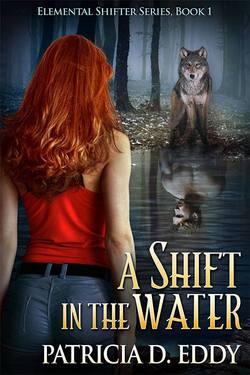 Title: A Shift in the Water, Elemental Shifter Series Book 1 Author: Patricia D. Eddy Genre: Paranormal Romance Cade Bowman leads a small werewolf pack in Bellingham, Washington. Or he did, before a fire elemental intent on revenge traps him as his wolf. His pack gone, held prisoner by the elemental's charms, he knows death is coming for him. Mara Taylor is dying. A mysterious blood disorder is taking her life and her doctors can't seem to stop it. Only her daily swims offer her any relief. Resigned to her fate, she heads to Orcas Island for one last swim. When Cade's wolf finds Mara, he knows instinctively that she's the key to freeing him from the fire elemental's charm. She's more than that. She's his. Can Mara free Cade his wolf and save her own life in the process? And if she does, can they survive when they learn the identity of the fire elemental hunting them both? The ReviewWhen I picked up A Shift in the Water by Patricia D. Eddy, I couldn't put it down. I felt sad when I went to work and had to leave my Kindle behind. When I got back home, I sat with my back against the stove so I didn't burn dinner. I still burned dinner, but it was barely burned. If I hadn't stuck so close to the meal, it would have fused to the pan. Cade was trapped and tormented, a woman was facing the end of her life with as much dignity as possible, and yes, there was sexual tension. There wasn't time to stand over a sauce pan and stir! The story and building romance kept me turning the pages, but I couldn't help but identify with Mara. So many of the symptoms she faced mirrored systemic lupus, and were things I've experienced. I was really impressed with how well Eddy captured the emotions of someone steeped in illness. The struggle to find a diagnosis is exhausting on its own without the fatigue that often comes with chronic health issues. I could relate to Mara's refusal to move in with her friends, and reluctance to rely on others. It wasn't about trust. It was about independence. Going off to think by herself, even though it was dangerous, made sense. Every time she went against doctor's orders, it was believable. Because of the paranormal elements, when her struggles continue to grow in intensity, there was still hope. This book is a great example of why I love the paranormal. I can't think of a reason to not read this book. If you like interesting characters with a lot of depth or people who face adversity with grace and determination, you will like A Shift in the Water. About the Author Patricia D. Eddy can't stop writing. Not that she's tried. Her characters won't let her. She fuels her writing with copious amounts of caffeine-she lives in Seattle, after all-and rewards herself with good Scotch and red wine. In between writing, editing, and mentoring other authors, she runs around lakes, reads late into the night, and is terribly addicted to Doctor Who and Sherlock. She has a thing for quirky British men and isn't ashamed to admit it. Her quirky-but-not-British husband never gives her grief for working long hours or occasionally talking to herself when she has disagreements with her characters, for which she is very thankful. Patricia D. Eddy's...... Website | Twitter | Facebook |
Camela ThompsonFreelance writer and Dark urban fantasy author featuring vampires with bite. My BooksCategories
All
Archives
July 2020
|
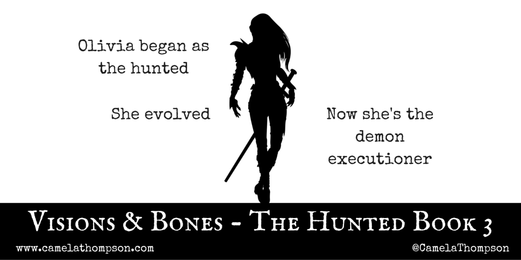
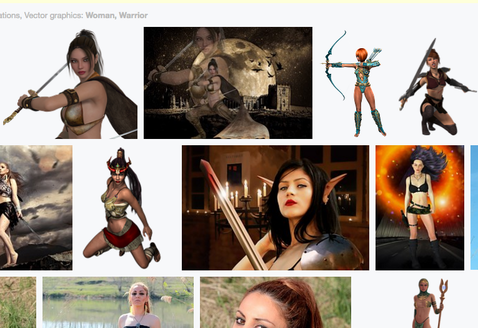
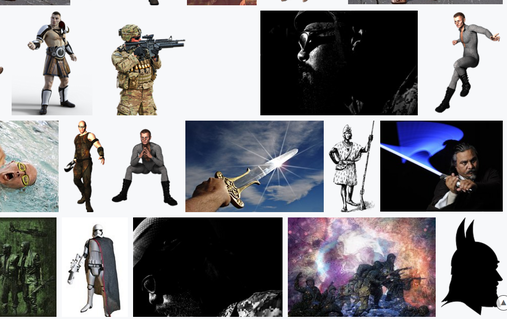
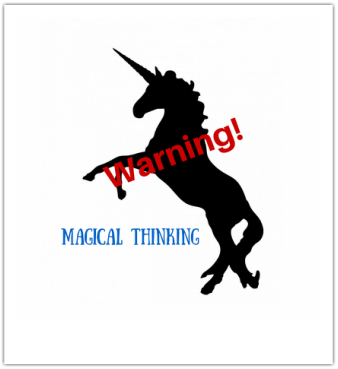
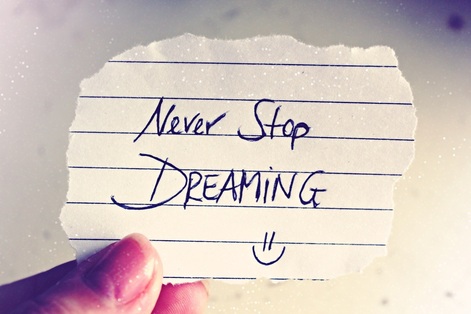
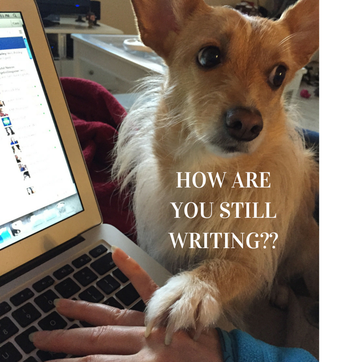
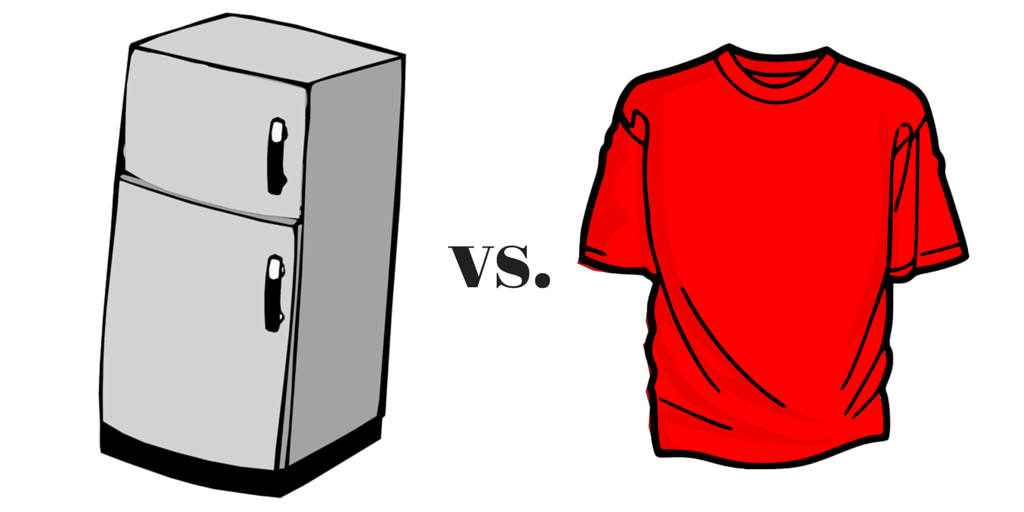
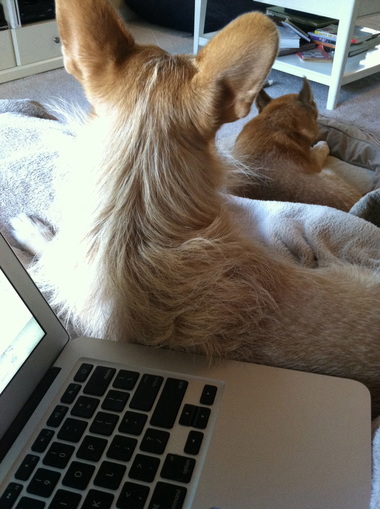
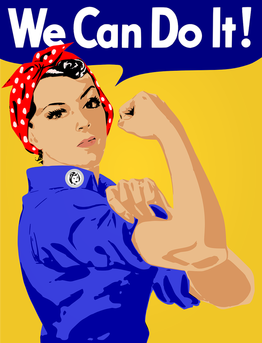
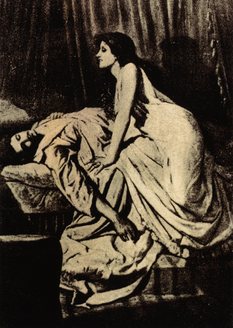
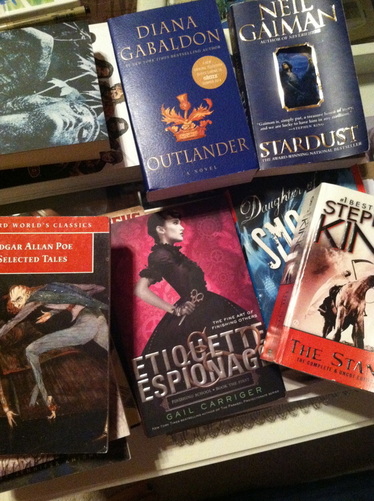
 RSS Feed
RSS Feed